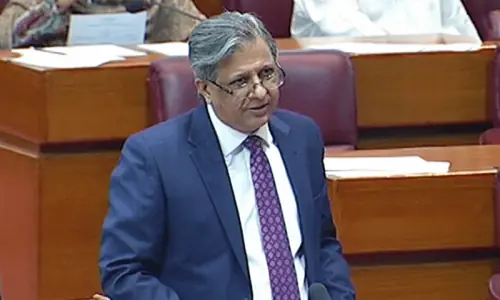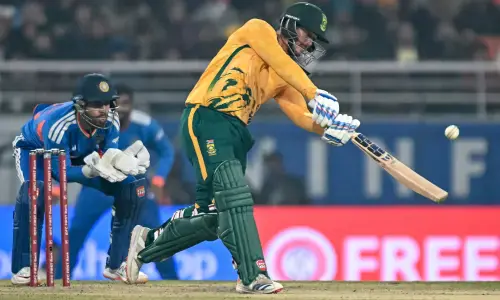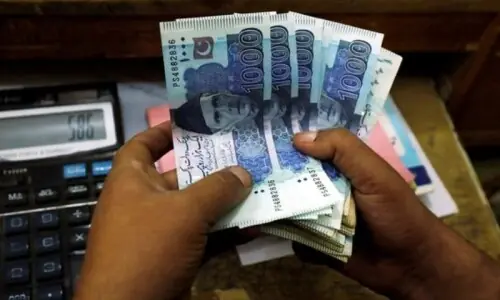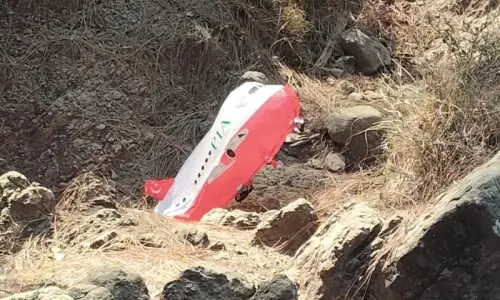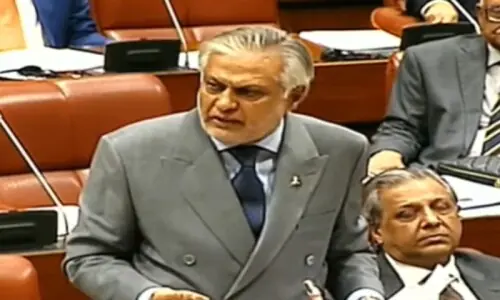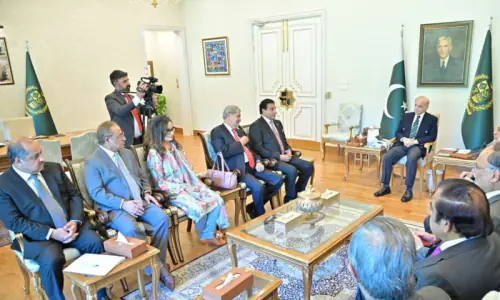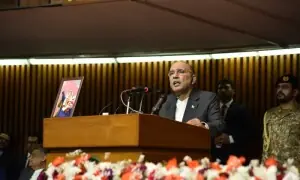IF Friday’s election of the chief minister of the Punjab was meant to lift the haze of uncertainty over the province, and by extension national politics, it accomplished exactly the opposite. Yet another political question headed back to the superior judiciary.
Many legal experts say the reprieve Hamza Shehbaz earned in the Punjab Assembly is temporary and that the superior court would overturn that in a matter of hours. However, the matter has been adjourned until Monday.
Some have said that it was the apex court’s own ruling earlier, in response to a presidential reference, that opened the door to what happened on Friday in the assembly.
Whatever happens next will be another sad, sordid chapter in Pakistan’s history, where political parties and leaders have found it impossible to talk to, and negotiate with, one another — and a political issue will yet again be settled by the judiciary.
Whatever happens next will be another sad, sordid chapter in Pakistan’s history.
The judiciary may have displayed a marked propensity for deciding political questions whether with rulings on specific petitions or, as was the case, on a recent presidential reference, but prudence warrants a much more cautious approach in a charged environment, which has polarised the country and split it into two camps.
Read: Key takeaways from SC’s order on Elahi’s plea on Punjab CM election
All this political and, dare I say, judicial wrangling is happening against the backdrop of a bleak economic landscape with huge spikes in global energy and food prices, with massive economic mismanagement at home driving inflation to unbearable levels.
Whether this latest crisis was also triggered by former prime minister Imran Khan’s falling out with the military over the appointment of DG ISI last year or by subsequent events is immaterial.
It is equally immaterial whether divisive, populist slogans should be used in a country as delicately balanced as ours, especially at a time of a grave economic crisis. What is of substance and counts is that such tactics produce a rich dividend. What else could be so effective as to neutralise the all-powerful establishment as the recent by-election results suggested?
At a time when the PML-N would have ideally been looking at the by-election result on a constituency-by-constituency basis and analysing if a different strategy could have delivered a better result, it seems to be directionless. Or worse, being pulled in two different directions.
Situationer: Cosying up to establishment proved ‘kiss of death’ for PML-N
It has been an oversimplification for some PML-N leaders to say that the 20 by-elections in Punjab were all on seats that became vacant when the PTI’s and PML-Q’s floor-crossing members were disqualified, so for PML-N to win four of these seats was an achievement.
That argument carries no weight as the PML-N’s stance on the 2018 elections has been quite clear that the whole electoral exercise was rigged and hence not credible. It can’t have its cake and eat it too. So were the 2018 elections rigged or weren’t they? The PML-N has to be consistent in its stance.
The inconsistency in the PML-N stance on this issue as on the economy or even continuing in office for long after the April vote of no-confidence, when party leader Nawaz Sharif and Maryam Nawaz are understood to have favoured a quick dissolution and fresh elections as opposed to Shehbaz Sharif’s stance, is what must be confusing and demotivating the supporter and the voter.
Party leaders including some cabinet ministers have felt compelled to go public with their endorsement, for example, of Finance Minister Miftah Ismail, while one minister has declared support and admiration for former finance minister Ishaq Dar and seemed to suggest the latter was better suited to handle the economic challenges. These statements came against the backdrop of suggestions that Mr Dar may be headed home to steer the economy.
So far, among the party rank and file and its voters there is one supreme leader and that is Nawaz Sharif. Maryam Nawaz is developing her own persona and constituency in terms of popular politics. Sadly, the prime minister and his son, the now ‘trustee’ Punjab chief minister, have the charisma of a thick tree trunk.
Whatever happens in the Supreme Court in terms of Hamza Shehbaz’s fate, at the very latest general elections will have to be held by early autumn next year. Given what has happened in the by-elections it is not clear how much ground the PML-N can claw back.
The economy will take months to stabilise if there are no more dramatic political shocks in store and inflation will also not be curbed overnight. Given where we are today, a contraction of the economy is likely to cut the current account deficit. This may lead to job losses for poorer sections of society whose budgets have been decimated by inflationary pressures, adding insult to injury.
Apart from the PTI, which has pioneered social media messaging and has clearly got the first movers advantage, other parties such as the PML-N, PPP, JUI-F, ANP and MQM seem a million miles away in this key area. Since the 2018 elections, some 15m new voters have been added to the electoral rolls.
It is these new voters who, regardless of socioeconomic or educational status, have smartphones and use social media. When the powers that be were foolhardy enough to arrest media personality Imran Riaz Khan, they did nothing but enhance his popularity among his 6m strong YouTube audience.
Relying solely on backroom deals, public meetings and traditional media may have worked in the past, but depending on them to deliver continuing electoral successes in this day and age will be imprudent and the source of rude shocks in every election from now on.
Are the PTI’s rivals prepared to up their game in the 21st century as a massive demographic transformation has happened and continues to take place? This is a question whose answer will most likely decide the outcome of the next general election in the country.
The writer is a former editor of Dawn.
abbas.nasir@hotmail.com
Published in Dawn, July 24th, 2022














